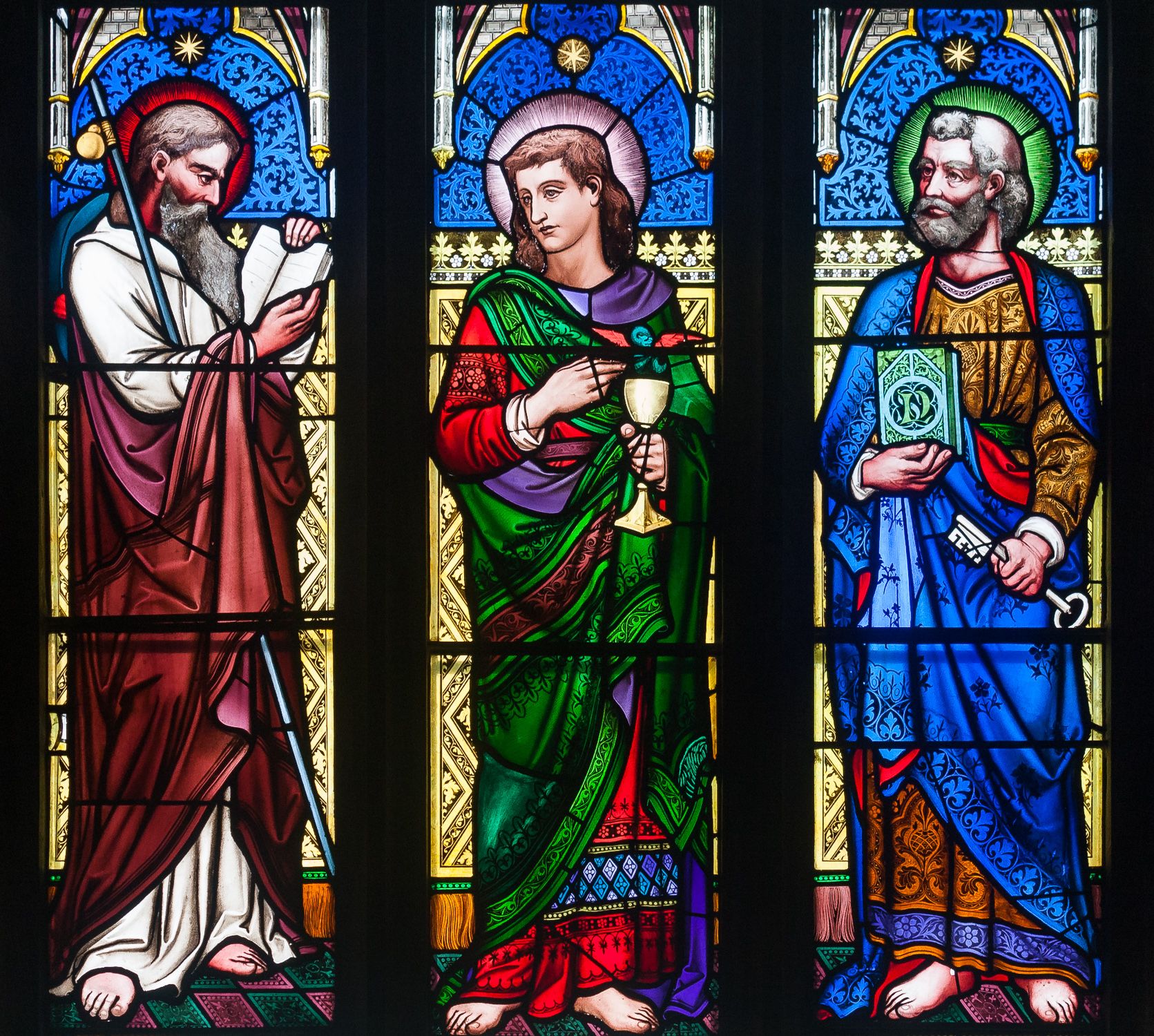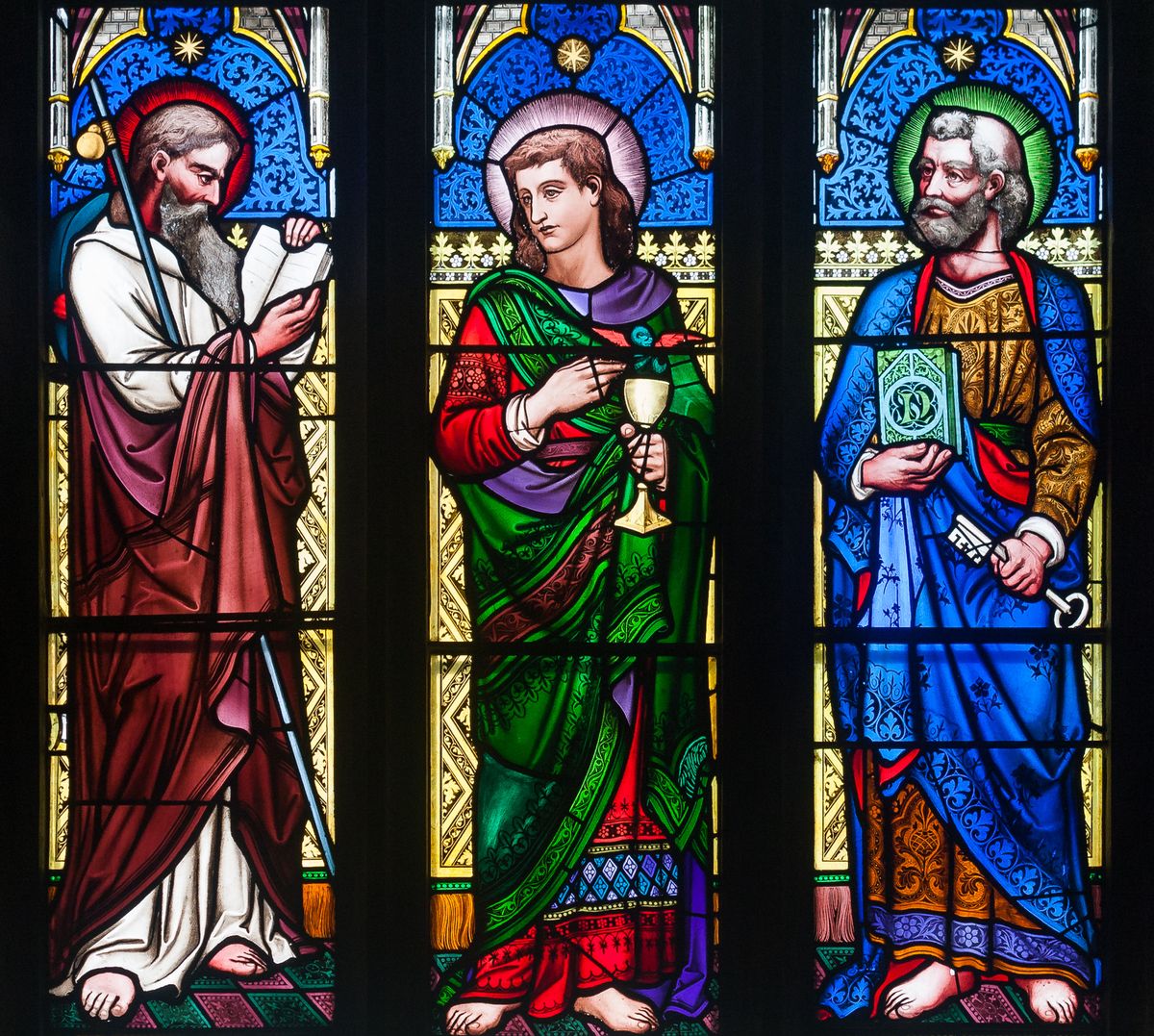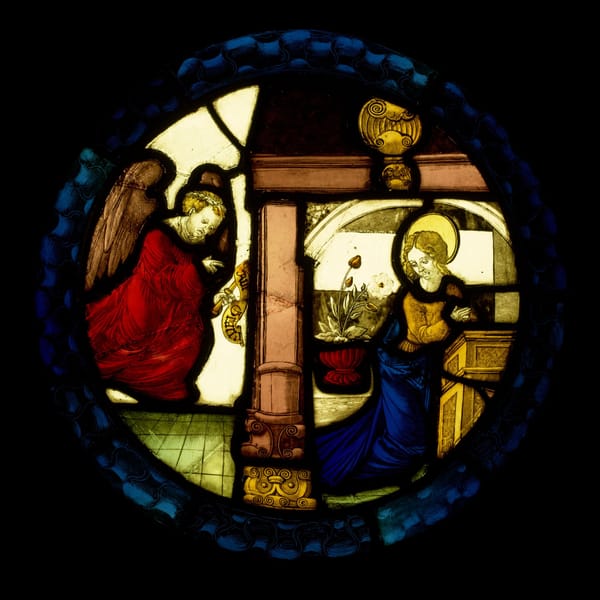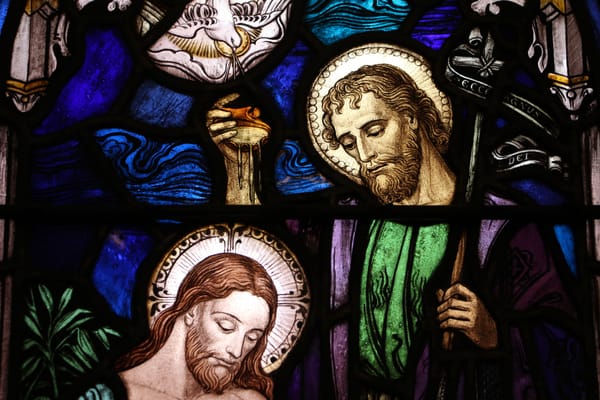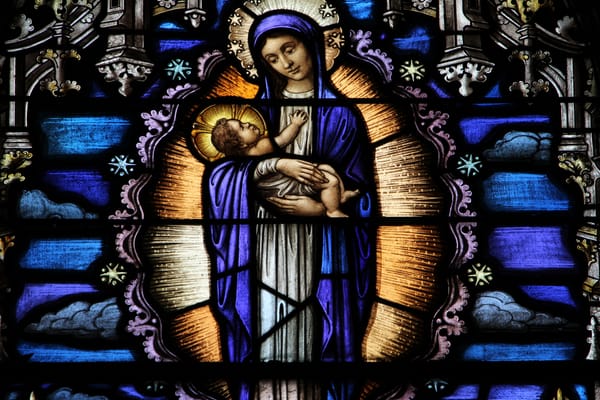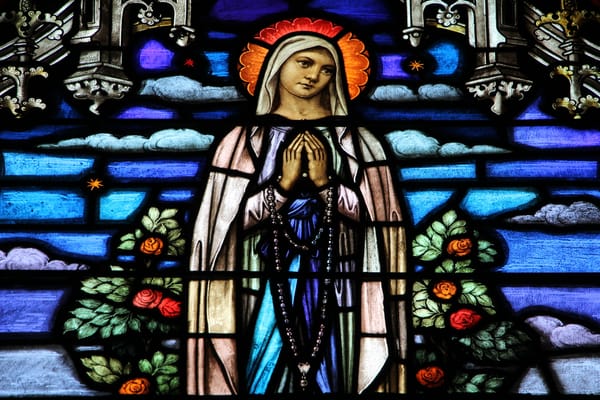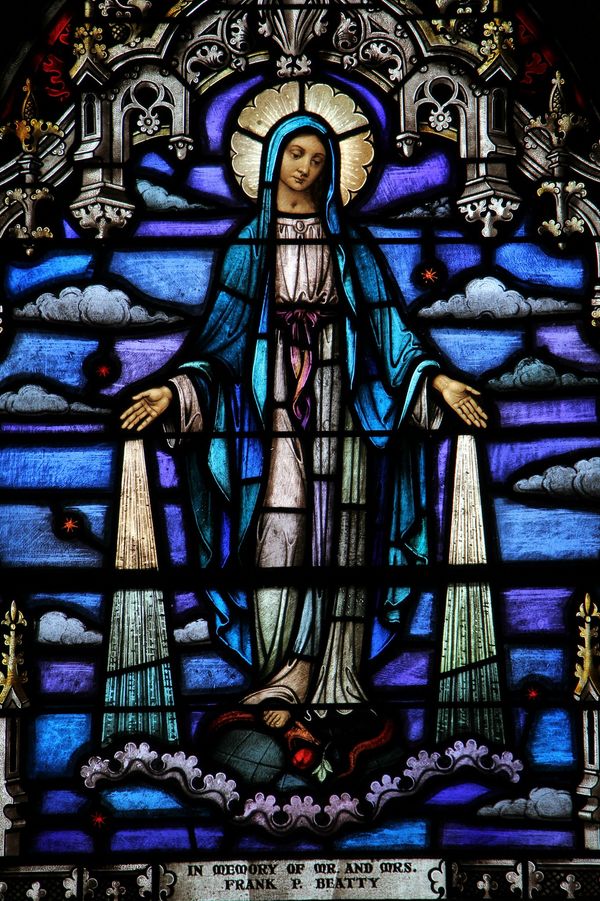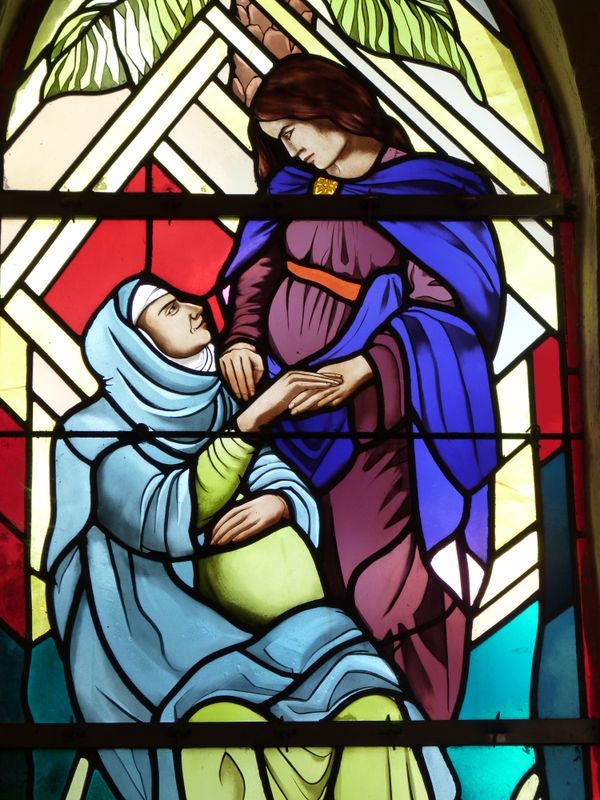About the Image:
- Medium and Technique: The primary medium here is colored glass, held together with lead strips called 'cames'. These windows were made by cutting pieces of colored glass to fit a design, then joining them together.
- Color and Light: One of the most striking features of stained glass is its interaction with light. When sunlight passes through the colored glass, it transforms the interior of the building with vibrant colors. You can see the deep reds, blues, greens, and golds, which create a sense of warmth and reverence.
- Symbolism: Each of the figures in this window has its own significance. The depicted figures are:
- St. James the Greater: Recognized by the pilgrim's staff he's holding.
- St. John: Often symbolized by a chalice, referencing a biblical event where he was challenged to drink a cup of poison but was unharmed.
- St. Peter: Known by the keys he's holding, symbolizing the keys to the Kingdom of Heaven.
- Details and Patterns: Look at the intricate details in their robes and the background. The patterns and designs are not just decorative; they can also convey deeper meanings or simply enhance the beauty of the scene.
- Purpose: In historical context, not everyone could read or had access to books. Stained glass windows acted as visual stories, teaching the congregation about the Bible, saints, and other religious teachings.
🙏🏽
Please give proper attribution.
Image CC BY-SA 4.0 by Andreas F. Borchert
Image CC BY-SA 4.0 by Andreas F. Borchert
